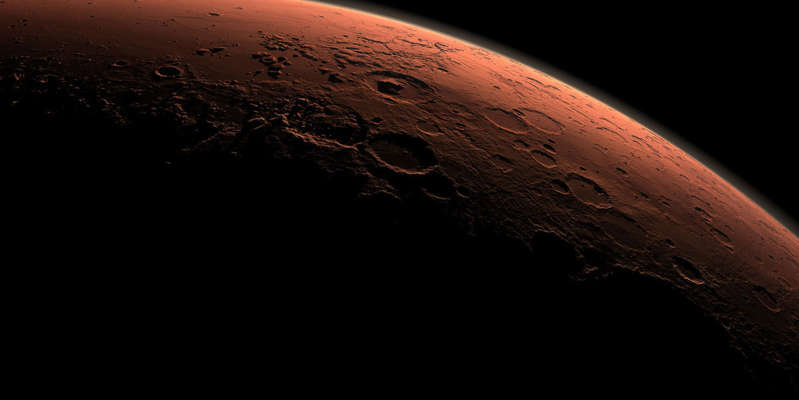
Scientists have figured out how to double the growth of plants on Mars
Plants grown on Martian-type soils show rapid growth when inoculated with symbiotic nitrogen-fixing bacteria. This is the conclusion reached by agronomists from the University of Colorado (USA), they shared the results of the study in the journal PLOS ONE .
Experts studied the relationship between the harvest on Martian-type soils and bacteria, since during the colonization of the Red Planet it will be more convenient to grow part of the food on a space base. However, Mars' soil lacks certain nutrients, in particular nitrogen-containing molecules, which plants need to grow.
Scientists believe that bacteria will be able to turn the Martian regolith into fertile soil, as they are able to bind nitrogen from the atmosphere and make it so that the roots of plants can absorb it. Some microbes even settle on the roots of plants specifically for this, forming a symbiotic relationship with them.
During the experiment, agronomists recreated the Martian regolith and tried to grow sweet clover (“honey clover”) on it. In one of the pots, the scientists planted alfalfa nodule bacteria on the roots. Thus, the clover with bacteria has grown much faster, and its root system has developed 75% stronger.
It is noted that the level of ammonium in the soil did not increase. This suggests that the microorganisms stimulated the growth of melilot, but did not produce an excess amount of nitrogen compounds that could be absorbed by neighboring plants. Therefore, it is the symbiosis of plants with bacteria that can be used to grow crops on Mars.
In ancient times, there were powerful floods on Mars. They changed its surface forever, leaving deep chasms behind. Some of the crater lakes were large enough to contain an entire sea.

